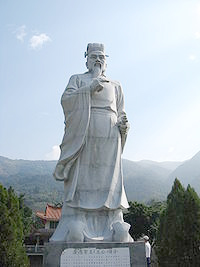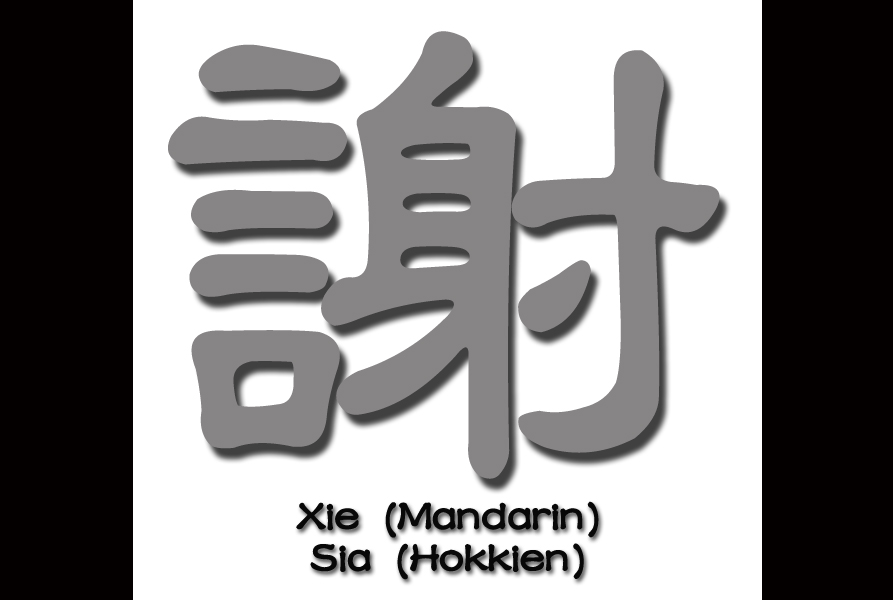First published in Tulay, Fortnightly Chinese-Filipino Digest 24, no. 13 (December 6-19, 2011): 5.
The Chinese surname 謝 (Xie in Mandarin, Sia in Hokkien), literally means thanks or salamat in Filipino.
It ranks 23rd among Chinese surname in the Philippines, and 24th in China. It is said that 謝 was among the four big famous surnames during the Northern and Southern dynasties (420-589 AD) and the origin of this surname is quite unusual. 謝 actually originated from the uncle of Emperor Zhou Xuan Wang (周宣王) (827-782 BC) of the Zhou Dynasty.
In Chinese, there are several words for uncle, each one specifically points out if the relation is from the father’s or mother’s side of the family.
In this case, the emperor’s uncle was from the mother’s side so in Chinese, it is addressed as 舅舅 (Jiu Jiu in Mandarin). And since he is the emperor’s 舅舅, he was respectfully addressed 國舅 (guo jiu), which literally means uncle of the state.
So, imagine 國舅, the ancestor of the Xies, was the uncle of the State of Zhou. This ancestor is said to be the heir of the legendary Emperor Yan (炎) with surname Jiang (姜).

He was called Uncle Sen (申) since he was conferred a territory at a place called 申 in Henan province and established the State of Sen (申). Uncle Sen’s territory was expanded through the emperor further south to include a fertile land called xie (謝) and eventually built its capital there.
The city Xie became so prosperous that some of Uncle Sen’s subjects adopted Xie as their surname. Then finally, Uncle Sen decided to declare one day all his people will use Xie as their surname.
The most famous figure of Xie surname in Chinese history is Xie An (謝安). He was the prime minister of East Jin (東晉) (317-420). He is known for defeating an army of one million in the year 383 with only Fei Sui’s (淝水) army of 80.
In the Philippines, one former secretary of Foreign Affairs and former ambassador to Japan, Domingo L. Siason Jr., is an heir of Chinese with surname Sia.
Thank you! Xie xie (謝謝). To Sia (多謝)! Salamat!





